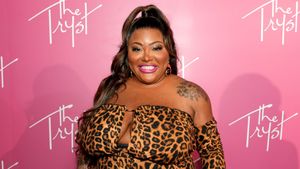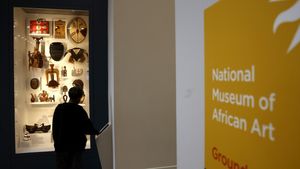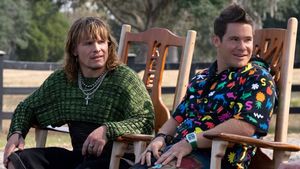Some Latino activists are taking the old saying 'Honesty is the best policy' and acting on it in a thoroughly modern way. Cu'ntame, a project of the social justice-oriented Brave New Foundation, is a social media group whose name translates as 'count me' or 'tell me your story.' Based in Culver City, Calif., the project is using Internet videos to let Latinos tell their stories and raise awareness of a variety of issues. Its video series An Honest Conversation deals with lesbian, gay, bisexual, and transgender issues, including HIV, which disproportionately affects gay men, Latinos, and gay men who are Latino. It's not easy to raise awareness when people are reluctant to discuss these matters, which is common among Latinos, says Jessica McMunn Macias, a story and content producer for Cu'ntame. 'It's very taboo in our community,' she says of LGBT topics and HIV. 'An Honest Conversation's goal is to open up the conversation with families.' Last October, at the first gay pride event ever held in conservative Lubbock, Texas, Macias found a Latino gay man willing to open up about being HIV-positive. 'It was just fate,' she says of encountering Ronnie, a 42-year-old nurse now living in Los Angeles. From an event stage, she asked if anyone would like to share a story. He tapped her shoulder and said he would. In that appearance and a follow-up shoot the next day, there emerged a compelling, often tragic, but ultimately hopeful tale. In the video Ronnie (last name withheld by request) talks about being gay-bashed and otherwise abused, hiding his homosexuality to join the military, being found out and discharged, and eventually receiving his HIV diagnosis. He says he 'gave up' for about two years afterward, drinking and partying to escape. But after receiving admonitions from an aunt, he finished college and became a nurse, and now he is helping others. All his experiences, he says, have informed his life. 'I have been beaten up as a kid. I've been sexually assaulted as a kid. I've been beaten up as an adult. I've been shot at, I've gone overseas, I've been in the military'I thank God that I've done all this, because I can walk into a room as a nurse now, and I can look at a person's face'and I know exactly what happened,' he says, giving as an example a girl who was beaten up because she was a lesbian. 'The only thing I need to figure out is, What do I need to do for her to get her out of that situation?' He goes on to enumerate the lives he's saved and say young people 'need to be themselves. You are who you are.' There's an actual life out there for you to live.' Ronnie had not previously spoken publicly about having HIV, and none of his friends and only part of his family knew. 'I'm tired of not just being able to say it,' he says in the video. Of his decision to participate in the project, he tells HIV Plus, 'I share my story in hopes of helping others in situations like my own, and to express that regardless of what life offers you, you have to look forward, grasp tightly to your dreams, take pride in who you are and what you offer to those whose lives you affect on a daily basis.' Macias notes that reaction to his video has been overwhelmingly supportive, with many complimentary comments posted online, such as 'You have a lot to be proud of' and 'Thank you so much for your bravery and your trust in us.' She adds, 'Ronnie gives good advice. He's really an inspiration'and he's able to mentor a lot of kids.' Ronnie's video and others can be viewed HERE. Macias says there's a possibility the videos will be shown in other venues to help the project toward its goal. 'We're trying to open up that conversation with families,' she says.

















































































